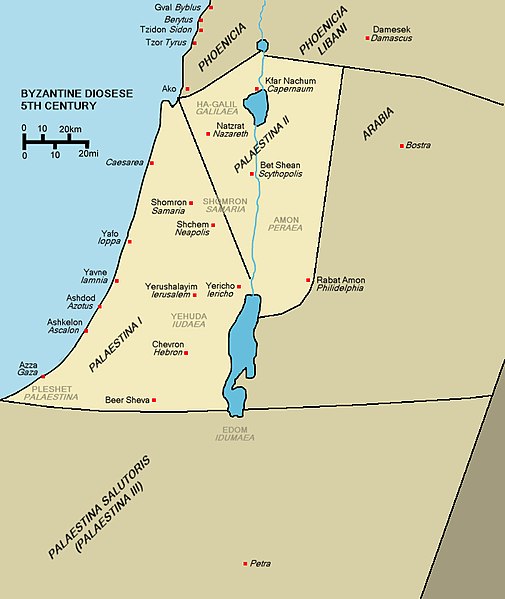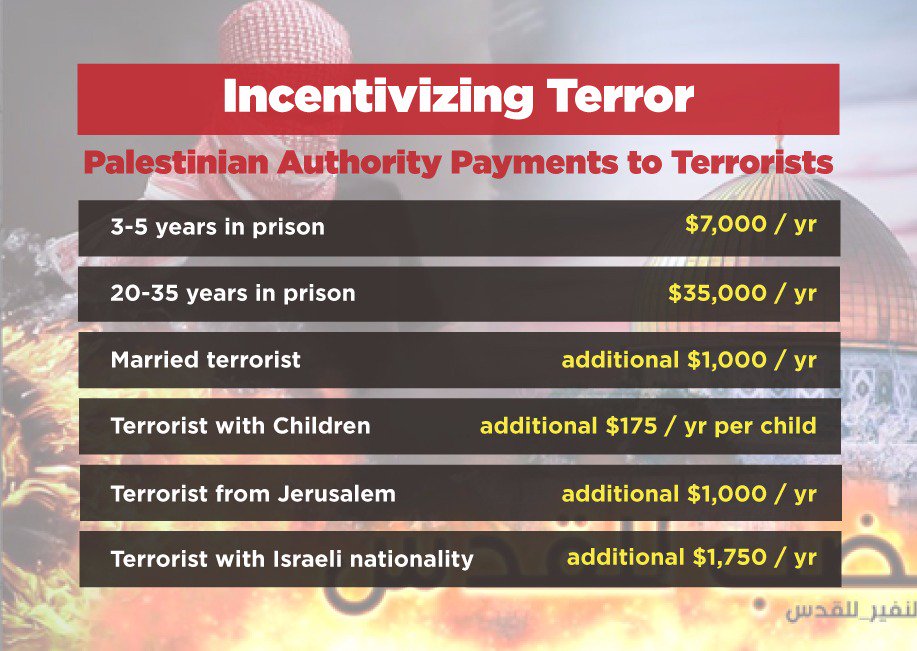Khaled Abu Toameh: Palestinians: Hamas and Fatah - United against Trump
The two rival parties, Fatah and Hamas, are prepared to lay aside their differences and work together to foil US President Donald Trump's plan for peace in the Middle East, the details of which remain unknown. Thwarting Trump's peace plan has become a top priority.INSS: The Palestinian Refugees: Facts, Figures, and Significance
Although the details of the Trump plan still have not been made public, Palestinians across the political spectrum say they will never accept any peace initiative presented by the Trump administration.
The Palestinians know that no US peace plan would comply with their demands. Abbas's Fatah is demanding 100% of the territories Israel secured in 1967, namely the West Bank, East Jerusalem and the Gaza Strip. Hamas, for its part, is demanding 100% of everything, from the Jordan River to the Mediterranean Sea. As Hamas leaders repeatedly affirm, the goal is to "liberate all of Palestine," meaning all of Israel.
The decision by US President Donald Trump to freeze a third of the United States' contribution to UNRWA, the United Nations Relief and Works Agency, has brought renewed attention to an organization whose very existence and activity arouses harsh criticism in Israel. UNRWA was established in 1949 after the War of Independence to deal solely with Palestinian refugees. As with the question of Jerusalem, the Palestinian refugee issue has been seen for some seventy years as a principal obstacle to a resolution of the conflict between Israel and the Palestinians. For the Palestinians who have been raised on the Nakba heritage, any compromise on this issue is an attack on Palestinian national identity.
The number of individuals forced to leave their homes during the War of Independence is estimated at 720,000. Most of them settled in refugee camps in the West Bank, the Gaza Strip, Jordan, Lebanon, and Syria. According to UNRWA, all the descendants of Palestinian refugees are considered refugees, and therefore today they number over five and a half million. Citizenship of another country, for example, Jordan, does not cancel their refugee status. In other words, only the return of the refugees and their descendants to their homes can cancel this status.
For Israeli governments, the Palestinian demand for the "right of return" of refugees was and remains a red line. This position is supported by an absolute majority of Israeli citizens from all parts of the political spectrum, because the return of such large numbers of Palestinian refugees to the State of Israel would have far reaching consequences for the character of the state. However, all the attempts by the State of Israel over the years to change UNRWA’s definition of refugees have failed. Israel’s efforts to change UNRWA’s status as an independent entity and subject it to the UNHCR, which handles all other refugees worldwide, has failed as well. This is largely because the Arab countries believe that such a change would make it impossible to pass on refugee status to the descendants of Palestinian refugees and thus weaken the Palestinian position in negotiations.
The social and political shockwaves in the Middle East since 2011 make it imperative to reexamine the refugee issue. First, the expanding numbers of refugees from the Middle East and Africa challenge the uniqueness of the Palestinian situation. Today there are some 60 million displaced people, including 17 million refugees, half of them under the age of 18. These refugees are the responsibility of the UNHCR (High Commissioner for Refugees), and some make their way to Europe. Their movement has enormous economic, security, political, and national consequences for most of the countries of the continent.
Salon: Netanyahu the ‘Most Dangerous Man in the Middle East’
Yes you read that correctly: according to Salon, Israeli PM Benjamin Netanyahu is “the most dangerous man in the Middle East.”
But lest you think that this headline is simply click-bait, the author of the piece, Patrick Lawrence actually believes it.
With the Israeli police report recommending criminal charges against the prime minister, issued last Tuesday, the most dangerous man in the Middle East, as I have long called Bibi, may finally be forced from office.
Let’s get some perspective. There are plenty of dangerous men in the Middle East but labeling the leader of the region’s only functioning democracy is simply laughable particularly when one considers some alternative candidates.
For example, Bashar al-Assad, responsible for gassing and bombing his own people, costing the lives of hundreds of thousands in the Syrian conflict.
What about the Iranians? Take your pick from Ayatollah Khamenei at the top, oppressing ordinary Iranians protesting for freedom, to Major General Qasem Soleimani, the senior member of the Revolutionary Guards responsible for coordinating Iranian proxies, both on the ground in Syria and further afield with the promotion of terrorism across the Middle East and beyond.
And don’t forget Hassan Nasrallah, the head of Hezbollah, the terrorist organization armed to the teeth and in possession of thousands of rockets aimed at Israeli civilian targets.


































.jpg)




